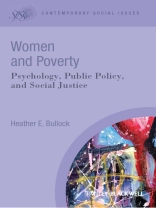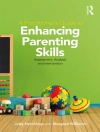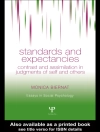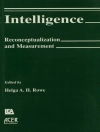Women and Poverty analyzes the social and structural factors that contribute to, and legitimize, class inequity and women’s poverty. In doing so, the book provides a unique documentation of women’s experiences of poverty and classism at the individual and interpersonal levels.
* Provides readers with a critical analysis of the social and structural factors that contribute to women’s poverty
* Uses a multidisciplinary approach to bring together new research and theory from social psychology, policy studies, and critical and feminist scholarship
* Documents women’s experiences of poverty and classism at the interpersonal and institutional levels
* Discusses policy analysis for reducing poverty and social inequality
Mục lục
About the Author ix
1 Women and Poverty: An Ongoing Crisis 1
2 Structural Sources of Women’s Poverty and Homelessness
16
3 Beliefs about Poverty, Wealth, and Social Class: Implications
for Intergroup Relations and Social Policy 40
4 Welfare Reform at 15 and Beyond: How Are Low-Income Women and
Families Faring? 70
5 Low-Income Women, Critical Resistance, and Welfare Rights
Activism 104
Co-authored with Wendy M. Limbert and Roberta A. Downing
6 Women and Economic Justice: Pitfalls, Possibilities, and
Promise 140
References 159
Index 192
Giới thiệu về tác giả
Heather E. Bullock, Ph D, is professor and chair of the
Psychology Department at the University of California, Santa Cruz
(UCSC), USA, and served as director of UCSC’s Center for
Justice, Tolerance, and Community. She studies the social
psychological causes and consequences of economic injustice, with
special attention to poverty among women. Much of her research
focuses on identifying the attitudes and beliefs that predict
support for anti-poverty policies, and the impact of framing on
policy preferences. Before joining the UCSC faculty, she served as
an APA Congressional Fellow with the U.S. Senate Committee on
Health, Education, Labor, and Pensions – Democratic Office.












